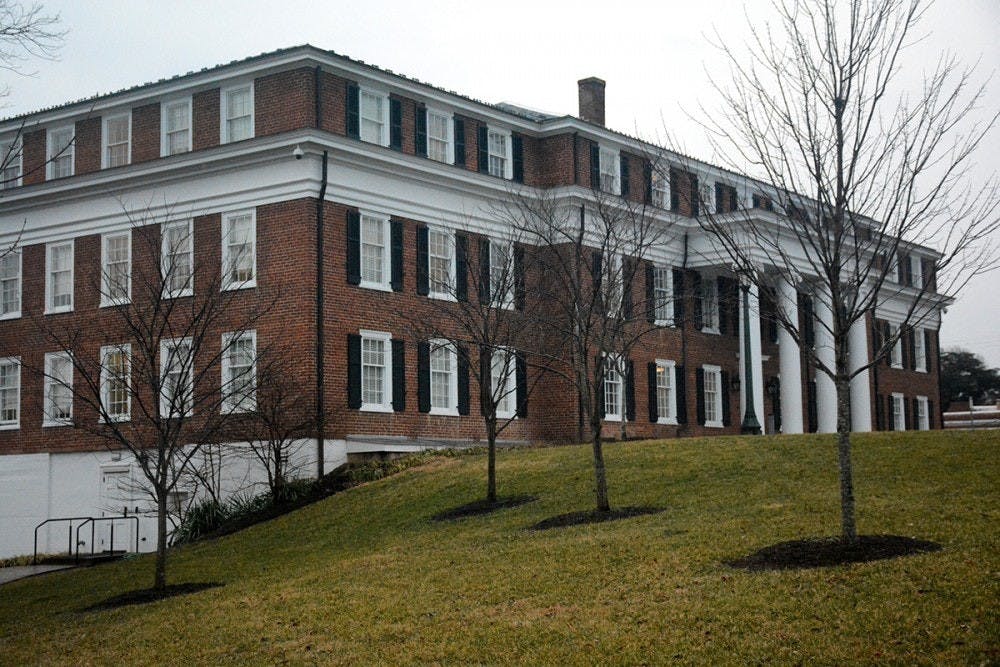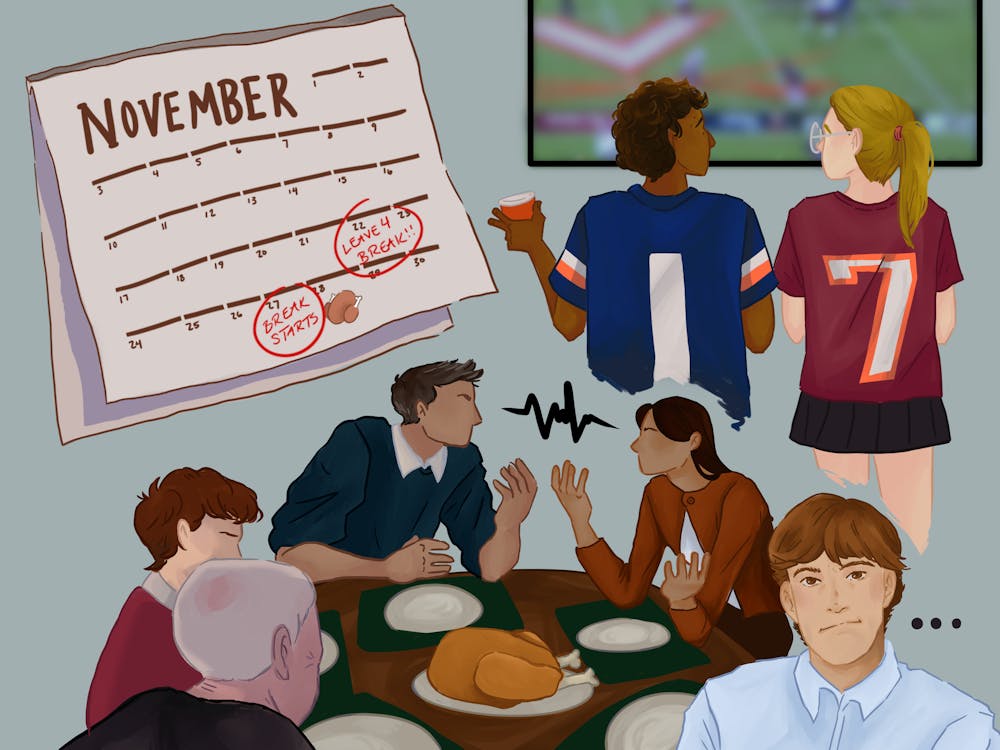Reported incidents of on-Grounds burglary, rape, dating violence, domestic violence and stalking increased from 2017 to 2018, according to an annual safety report released by the University last week. The report, which is required each year under the federal Jeanne Clery Act, includes all crimes reported to the University Police Department, other law enforcement and University officials, including the Office for Equal Opportunity and Civil Rights.
The safety figures state that 28 rapes were reported to University police in 2018, with 20 occurring in student housing — up from 16 reported rapes in 2017. Police also investigated 16 reports of dating violence, 14 reports of domestic violence, 43 reports of stalking, 16 reports of fondling, 16 reports of burglaries and 8 reports of motor vehicle theft — all significantly higher than previous years.
University Spokesperson Wes Hester attributed the rise in reported sexual assault and domestic violence “in part to outreach and education efforts by many University offices.”
The University currently has a variety of different avenues through which students can both report incidents of sexual violence and crimes, such as by submitting a Title IX complaint over the phone or in person at O’Neil Hall or through the University’s online Just Report It system. For students who do not wish to report an incident of sexual violence, the University also offers safe spaces with trained counselors at the Maxine Platzer Lynn Women’s Center.
Hester stated that the University has also added additional staff to its Office for Equal Opportunity and Civil Rights Title IX team and offers online and in-person Title IX training and prevention programs “to raise awareness of how and where to report, how to prevent such conduct from occurring and the many available support resources."
“We remain committed to making our community members feel empowered to report, and we continue to work to make the reporting process more accessible — such as through Just Report It,” Hester said.
Fourth-year College students Veronica Sirotic and Amelia Wilt, who serve as co-chairs of Take Back the Night at U.Va. — an international event with the ultimate goal of ending sexual assault worldwide — said that it’s almost impossible to pinpoint why more people are coming forward with allegations of sexual violence.
“We are living in a time period where there has been more publicity and outrage given to survivors of sexual violence which may contribute towards more people reporting their experiences,” Sirotic and Wilt said. “It’s important to be said that this in no way means that we now live in a space where it is entirely safe to share these experiences; coming forward is still an incredibly difficult and harrowing process and goes into a system that still puts survivors at a disadvantage and lets perpetrators walk free.”
They added that sexual assault disproportionately impacts minority communities, but the traditional narrative usually includes images of young white women getting attacked by a stranger, whereas people are more likely to get assaulted by someone they know.
“The history of this University has sexual violence embedded into its very fabric and construction that influences our discussions on this prevalent issue,” Sirotic and Wilt said. “We don’t see that in our modules or in the other little training we receive from U.Va. There is so much that we are not talking about. Let’s start there.”
Currently, the University requires all incoming students to complete the online Not on Our Grounds module, which is designed to educate students on the University’s policy on sexual and gender-based harassment and inform students of ways they can prevent sexual violence. Students are required to complete the module every two years.
Hester noted that the reporting of incidents related to the Violence Against Women Act is likely to increase nationally this year, and the University is currently in the process of comparing itself with peer institutions to inform future efforts.
In the coming weeks, the University will be publishing its AAU Sexual Assault Campus Climate Survey results — which the University distributed to students last March concerning sexual assault and sexual misconduct on Grounds. The University will also be releasing updated statistics regarding formal resolutions under Title IX Policy in the past two years, according to Hester.
This summer, the University created a new LiveSafe safety app that allows students, faculty and staff to report suspicious behavior or emergencies that occur on or off Grounds and to communicate with police officers via two-way text messages. The mobile emergency alert system can also be used to report incidents without calling a dispatcher, allowing users to anonymously discuss a safety complaint with a police officer.
The app — which includes links to the Just Report It system — also includes a SafeWalk feature that allows students to alert a friend when they have arrived safely at their destination.
In addition to an increase of reported incidents of sexual assault, more hate crimes were reported at the University in 2018 than in 2017. According to the report, the University investigated one incident of intimidation based on race, two incidents of intimidation based on religion, one incident of intimidation based on sexual orientation and one incident of assault motivated by race. In 2017, three hate crimes were reported, while seven were reported in 2016.
The University also reported a decreased number of arrests for liquor and drug violations in 2018. However, the University also adjudicated 449 referrals for disciplinary action — an increase from 416 in 2017.





